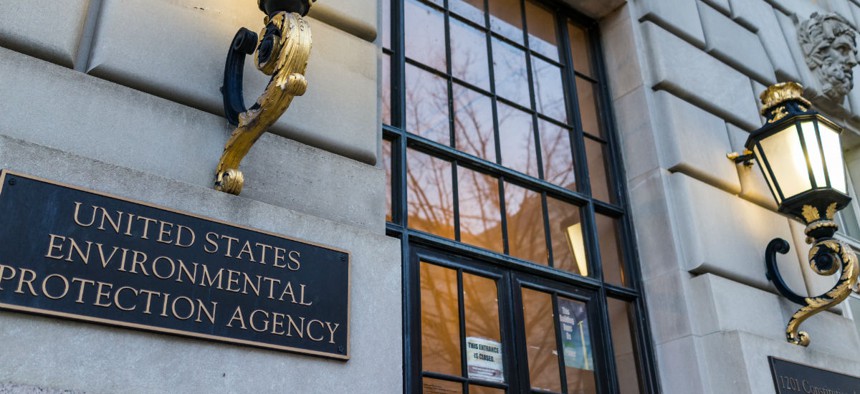
By Kristi Blokhin / Shutterstock.com
Oversight Democrats Demand Subpoena on EPA FOIA Practices
Staff interviews suggest the agency withheld documents deemed "politically charged."
The top Democrat on the House Oversight and Government Reform Committee on Friday demanded that the panel issue a subpoena requiring the Environmental Protection Agency to produce documents related to an alleged policy to withhold “politically charged” documents from Freedom of Information Act requests.
Last month, Rep. Elijah Cummings, D-Md., asked then-EPA Administrator Scott Pruitt for documents related to how the agency handles FOIA requests. EPA’s response, the lawmaker said, came in the form of an email “providing a link to documents already publicly released under FOIA.”
In a letter to oversight committee Chairman Rep. Trey Gowdy, R-S.C., Cummings relayed an excerpt of an interview with Pruitt’s chief of staff, Ryan Jackson, who alleged the agency had a policy to “deliberately delay” responses to FOIA requests that were deemed too complex or, in the minds of political appointees, politically motivated.
According to EPA staffers, political appointees hand-selected such requests and sent them to be processed by a different team than the standard FOIA response team.
“Responses to FOIAs are at times deliberately delayed, and political appointees review responses to FOIA requests before they are released,” Cummings wrote. “In at least one instance, EPA gave favorable treatment to an industry lobbyist.”
In a June 29 interview with committee staff, Jackson, who now serves as chief of staff to acting Administrator Andrew Wheeler, described one such instance of a FOIA request being set aside to be slow-walked.
“Well, you know, we were talking about the Sierra Club release, the request was—I can’t remember the original request, but the request was we would like to get all of the emails sent by, or maybe received by, but definitely sent by this group of people since they began working at EPA,” Jackson said. “So, that’s pretty much a fishing expedition. There’s a bit of a disagreement on if that’s even a proper request. But we tried to accommodate that request really as much and probably more than what we needed to.”
According to Cummings, Jackson admitted that at times, FOIA requests were delayed to accommodate the production of a different request.
“We also, you know, make decisions on we’ve got this FOIA working on this track, this FOIA working on this track, maybe it would be best to wait on this FOIA production until we get this much bigger one done,” Jackson said. “There may be, you know, just like a week or two delay in that, so that we can just produce them all at one time.”
And while FOIA requests from progressive groups like the Sierra Club and American Oversight were being pulled out of the normal response process, Jackson admitted to setting up a meeting between the National Pork Producers Council, an industry lobbying group, and policy staff to facilitate its FOIA request. The assistant vice president of the group is Michael Formica, a friend of Jackson.
“Well, when—in this case what it appears to me is that Michael [Formica] emailed me about a FOIA request that they had,” Jackson said. “People email me about a lot of things and people email me [asking for] help for a lot of things. I would love to be able to bird dog all of those issues and respond to everybody and I can’t. In this case . . . I just asked if [career staff] could help me with processing that.”
Cummings asked Gowdy to issue a subpoena for all documents since President Trump’s inauguration about EPA’s FOIA policies and processes, relating to the rejection of FOIA requests and pre-release review of documents in FOIA requests by EPA appointees or White House staff. In the letter, he cited Gowdy’s own concerns about political appointees reviewing FOIA responses at the Homeland Security Department during the Obama administration.
“During a committee hearing in 2011, you criticized an official from the Department of Homeland Security for having political appointees review FOIA responses,” Cummings wrote. “You asked the witness, ‘Would you concede that slow-walking or taking your time in complying with an otherwise legitimate FOIA request could be interference?’ I ask that you show the same concern for the way this administration is implementing FOIA.”







